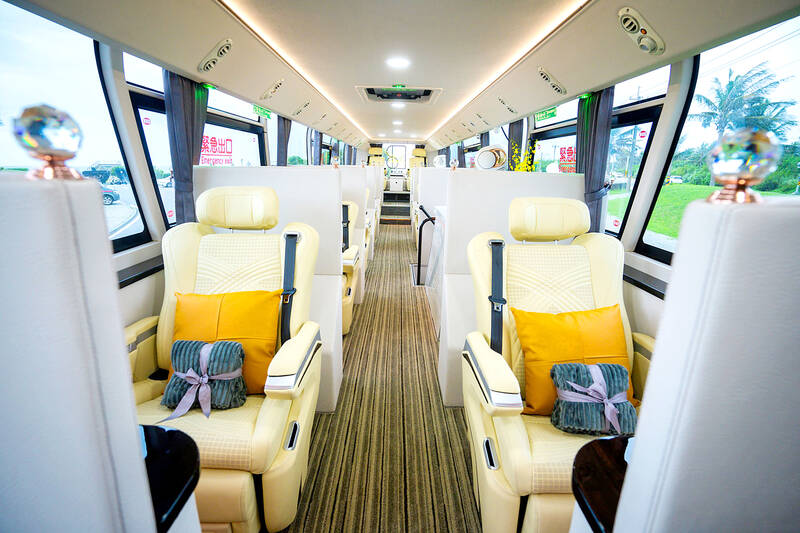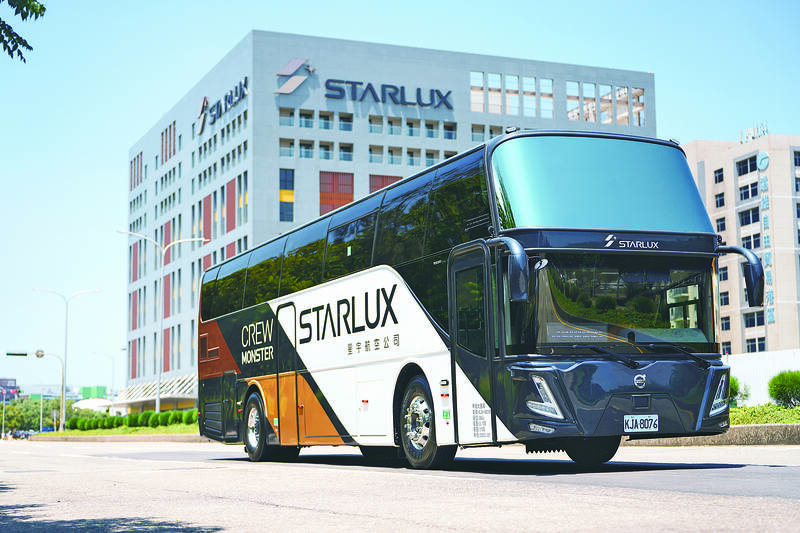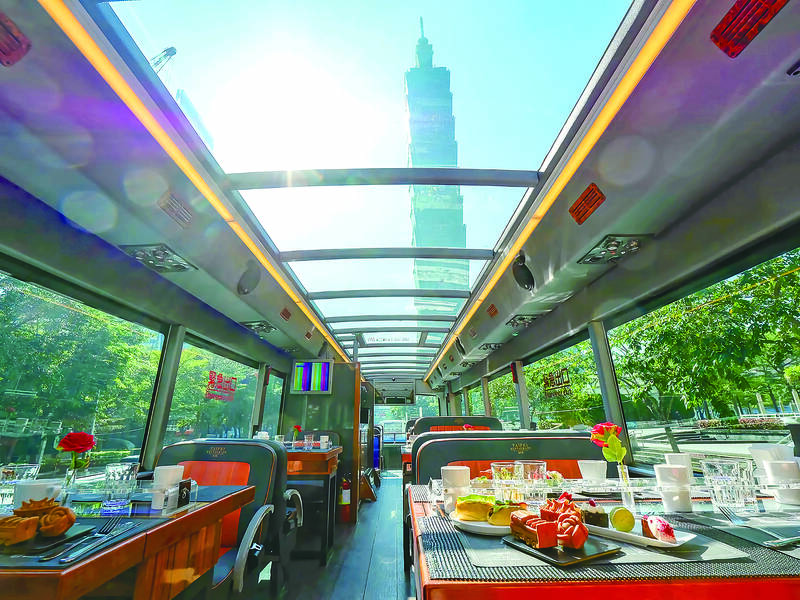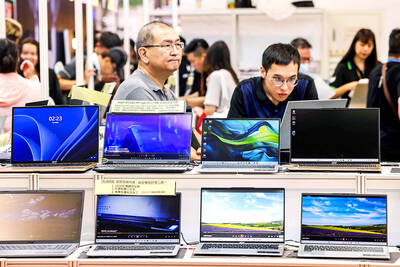‧ Post-pandemic tourism revival: the tourism industry vies for domestic and international opportunities
As the coronavirus pandemic is drawing to an end, many countries are lifting their border restrictions, Taiwan included. Since announcing its lifting of border control measures in October last year, we are seeing a persistent flood of passport applications, as well as a drastic increase in arriving travelers. The revival of tourism in Taiwan is real and palpable. The Ministry of Transportation and Communications’ Tourism Bureau has also been pouring resources in this sector, targeting international tourists in the fortified promotion of tourism in Taiwan. This year, the Taiwan Lantern Festival worked with various national flag air carriers to invite over 200 international tourism operators from 12 countries to visit Taiwan for the lantern festival and travel around the island to sample the local gourmet foods and check out the tourism resources. Worldwide travelers are not only scrambling for a trip overseas, but also becoming more demanding about all aspects of travel. As a result, they tend to plan their itinerary in advance, extend their stay or ramp up the budget to get more out of the trip, quality wise.
‧ Volvo Group continues its partnership with Taikoo Motors to offer all-rounded services and maintenance in Taiwan

Photo courtesy of Bai-Jun Transport
Taikoo Commercial Vehicles Ltd started the dealership with Volvo Trucks and Buses in 1978, and has since become Volvo’s long-standing partner. Their partnership has taken root in Taiwan for over four decades. The company has four directly operated service centers and 20 authorized maintenance workshops across Taiwan, including two flagship service centers, which are the largest in Southeast Asia. They also form a 360° industry ecosystem offering trucks, buses and construction equipment. The goal is to continuously provide total solutions and expand the market, and strengthen the services and position of Volvo as the industry leader in the long run. As a pioneer of sustainability, Volvo has since the 1970s incorporated reduction of carbon emissions and air pollution into the core values of the brand. Offering the best fuel efficiency among vehicles of the same range, plus low carbon emissions and high performance, the Volvo B11R has 460 HP, a solid chassis and 12-speed I-Shift transmission to give passengers the most stable and comfortable riding experience. Its outstanding steering capability allows the driver to stay focused and relaxed at the same time. Its fuel-efficient engine complies with Euro-6 environmental protection regulations and saves up to 10 percent of the fuel cost in a bid to cocreate sustainable values from an environmentally friendly stance.
‧ Safe, high-quality, sustainable Volvo Buses much coveted by premium brands
For international travelers, food, accommodation and transportation are everyday concerns. For international tour operators, enhancing tour bus comfort and safety while staying aligned with sustainable green energy trends has always been their top concern. As a leading brand for global premium travel coaches, Volvo Buses are much coveted by customers seeking quality and safety, and are often deployed to serve as luxury coaches. For instance, STARLUX Airlines(星宇航空) has purchased two of the Volvo B11R model to transport their cabin crew as shuttle buses, primarily for the consideration of safety and comfort; the entire bus’ furnishings and its exterior are an extension of STARLUX’s superior brand image, thus the best embodiment of dual branding. Equally worth noting is the “Unicorn” built by Bai-Jun Transport (百駿通運), which is also equipped with the Volvo B11R and introduced as the world’s first wight-seat super luxurious first-class tour bus. Boasting a smooth and comfortable riding experience, plus lush furnishings on par with a presidential suite, the “Unicorn” caused quite a stir upon launch.

Photo courtesy of STARLUX Airlines
‧ First in Taiwan: Volvo Taipei restaurant bus double-decker for dining and sight-seeing
Volvo and e-go have joined forces to launch the Taipei Restaurant Bus Double-Decker, which claims to have topped Taipei’s most popular tour itinerary in recent years, and guarantees to offer the most luxurious comfy tour bus experience. With a stable chassis, the outstanding vehicle allows for maximum comfort for dining as it traverses through the city. The restaurant bus consists of an upper deck for dining and a lower deck for food preparation. Able to seat 26 people, the bus is equipped with entertainment devices such as televisions, stereo sound and wireless microphones, plus a special full-view glass roof for passengers to take in the capital city’s scenery in East District and Xinyi District from a unique and brand-new angle. The exquisite and delicious meals are provided by a number of renowned hotels to ensure a super chill feast not only for the eyes, but also for the palate.

Photo courtesy of E-go Taiwan Car Rental & Travel Group Corp

TECH TITAN: Pandemic-era demand for semiconductors turbocharged the nation’s GDP per capita to surpass South Korea’s, but it still remains half that of Singapore Taiwan is set to surpass South Korea this year in terms of wealth for the first time in more than two decades, marking a shift in Asia’s economic ranks made possible by the ascent of Taiwan Semiconductor Manufacturing Co (TSMC, 台積電). According to the latest forecasts released on Thursday by the central bank, Taiwan’s GDP is expected to expand 4.55 percent this year, a further upward revision from the 4.45 percent estimate made by the statistics bureau last month. The growth trajectory puts Taiwan on track to exceed South Korea’s GDP per capita — a key measure of living standards — a

READY TO HELP: Should TSMC require assistance, the government would fully cooperate in helping to speed up the establishment of the Chiayi plant, an official said Taiwan Semiconductor Manufacturing Co (TSMC, 台積電) yesterday said its investment plans in Taiwan are “unchanged” amid speculation that the chipmaker might have suspended construction work on its second chip packaging plant in Chiayi County and plans to move equipment arranged for the plant to the US. The Chinese-language Economic Daily News reported earlier yesterday that TSMC had halted the construction of the chip packaging plant, which was scheduled to be completed next year and begin mass production in 2028. TSMC did not directly address whether construction of the plant had halted, but said its investment plans in Taiwan remain “unchanged.” The chipmaker started

MORTGAGE WORRIES: About 34% of respondents to a survey said they would approach multiple lenders to pay for a home, while 29.2% said they would ask family for help New housing projects in Taiwan’s six special municipalities, as well as Hsinchu city and county, are projected to total NT$710.65 billion (US$23.61 billion) in the upcoming fall sales season, a record 30 percent decrease from a year earlier, as tighter mortgage rules prompt developers to pull back, property listing platform 591.com (591新建案) said yesterday. The number of projects has also fallen to 312, a more than 20 percent decrease year-on-year, underscoring weakening sentiment and momentum amid lingering policy and financing headwinds. New Taipei City and Taoyuan bucked the downturn in project value, while Taipei, Hsinchu city and county, Taichung, Tainan and Kaohsiung

Micro-Star International Co (MSI, 微星科技) is expanding notebook computer production in India after partnering with Indian electronics maker Syrma SGS Technology Ltd late last year, as the Taiwanese company seeks to tap into the local market. MSI also plans to manufacture some of its new gaming PCs powered by Nvidia Corp’s RTX 50 graphics cards in India, while adding more advanced and design-focused PCs and notebooks at Syrma’s plant in Chennai, a source told the Taipei Times yesterday on condition of anonymity. MSI’s deployment in India is driven not only by cost advantages, but also by India’s rapidly expanding consumer market and